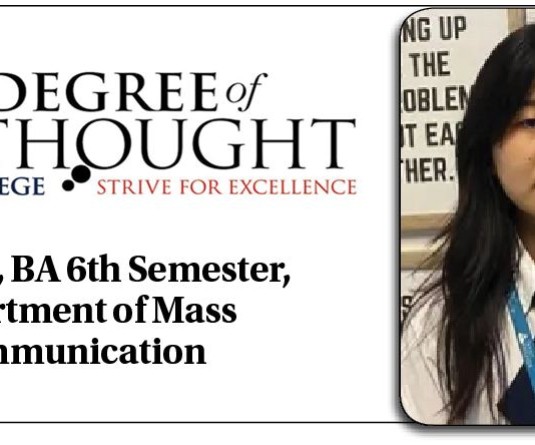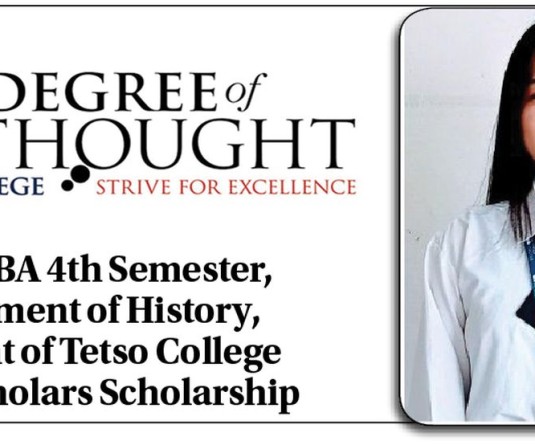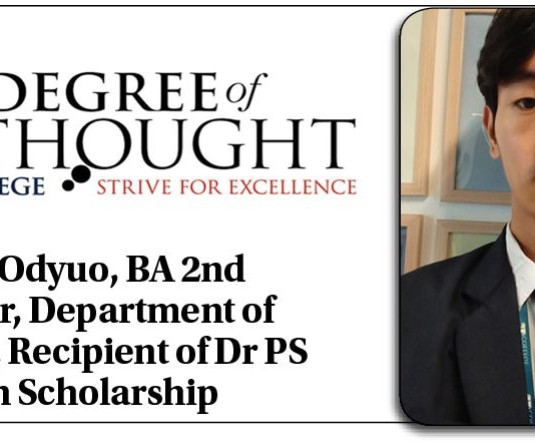
Generation Z (Gen Z) refers to the demographic cohort born between 1997 and 2012, and are currently mostly students from primary school to some being working professionals.
In the context of the Naga society, Generation Z is a diverse group, with some members with fierce ambitions, reaching for no limits to achieve their full potential, and achieving great heights independently. In contrast, another group dismisses great opportunities solely because they fail to get the “vibe.” Yet, another group of people still sacrifice their ambitions, regardless of their capabilities and desires, because they prioritise the betterment of their Family, often becoming breadwinners at a young age. Where, instead of being inside a well-maintained classroom, they happened to be on the streets with their crafts and skills to earn a living, even in such work, with the dignity of labour, while some fear societal and peer comments.
The foundation of the Moral values of Gen Z can be found in the influence of digital exposure, cultural belongingness and tribal identity. This Generation has witnessed various events such as the COVID pandemic, Political dynamics with the change of leaders and new policies, followed by growing and changing views on Gender roles, to being aware of their rights, they’ve seen it all! Having experienced various events and phenomena, Naga youths who comprise the Gen Z category are living with both positive and negative impacts. On the positive side, Generation Z are comparatively more advanced than millennials at their age, with a huge recognition and credit to the presence of technology, widespread media, and the quick availability of information. In contrast, unreachable and unrealistic beauty standards are the bar that one must achieve, and where everything, according to the needs, needs to be quick and easy, with information being one search and voice command away, the love for reading books is considerably low as compared to the use of AI and internet.
Gen Z has also experienced both the old school, traditional way of education and even the new age digital education with the use of virtual classrooms, Visual and Auditory learning accommodating to different levels of cognitive abilities in a sudden wave. It has helped the growth of students not only in their academic growth but also in developing and allowing them to discover their other interests and abilities.
Now, even the Naga youths are opting for vocational education and skills development courses rather than the traditional courses offered. And in terms of culture the Generation Z has also, to some extent, been playing their role in preserving their culture by still choosing to wear their respective traditional attire by wearing it to represent their tribe in an entertainment show plays, with pride when they are recognised with new and modern designs, with a touch of Western and asian fusion, also well-versed in maintaining their cultural duties by actively taking part in their tribal communities, which are mostly centred at the core of their tribal Churches.
Similarly, in the context of society, even to this day, the Church plays a pivotal role in shaping their sense of belongingness. Where this gene has also been altered and made their changes in expressing their cultural and Tribal Identity, it can also be seen that the youths are also more attracted to Protestant churches, for they search for a place to feel more loved and accepted, rather than following the traditional customs of religion.
In the context of financial conditions, this group in some extent can support their self and some, even as mentioned above are the pillars of their family, and again huge credit goes to social media where now they can promote their small scale business, thrift pages to being freelancers to using their social media handle as a platform of income by collaborating with brands and company and working with UGC (user generated Content) agencies giving them sense of financial independence.
Social media has enabled them to work with people globally beyond their geographical location, not forgetting how good leaders and prominent influencers have spread awareness about mental and physical health leading to the increase of “Gym rats”, but the other side of the story is the unrealistic standards of beauty, use of fast fashion, moving with trends seen as mandatory, fake lifestyles being projected creating a demeaning scene for those who are not able to fulfill the demanded lifestyle, with social media personalities such as, The wizard Liz and Andrew Tate who teaches them about gender roles, masculinity and moral principles.
Another Prominent change in the Naga society by Gen Z is the acceptance and normalisation of the LGBTQ+ community, not only in the virtual world but also practised in the society too, where youths are opening up about the feeling of their sexuality according to themselves, although any LGBTQ marriage has’nt been brought into the Light.
The Core moral values seen in the “Naga Gen Z” are the principles of acceptance, the openness to change and growth, where some are staunch with their philosophies and ideals, while some look forward to constructive criticism. And so with the dynamic changes, it should create a sense of consideration and concern in the Parents or guardians to adopt new methods of fostering love and teaching the new generation according to their different needs.
In conclusion, Generation Z is influenced by Western culture, but they are still able to kindle their cultural and tribal values that are passed on by their family and society, but wide and dynamic changes are witnessed in the context of education, finance and the acceptance of the LGBTQ community, which the older generation and the Old folks may resent, not accept and show disappointment.
Degree of Thought is a weekly community column initiated by Tetso College in partnership with The Morung Express. Degree of Thought will delve into the social, cultural, political and educational issues around us. The views expressed here do not reflect the opinion of the institution. Tetso College is a NAAC Accredited UGC recognised Commerce and Arts College. The editorial team includes Chubamenla, Asst. Professor Dept. of English and Rinsit Sareo, Asst. Manager, IT, Media & Communications. For feedback or comments please email: dot@tetsocollege.org






